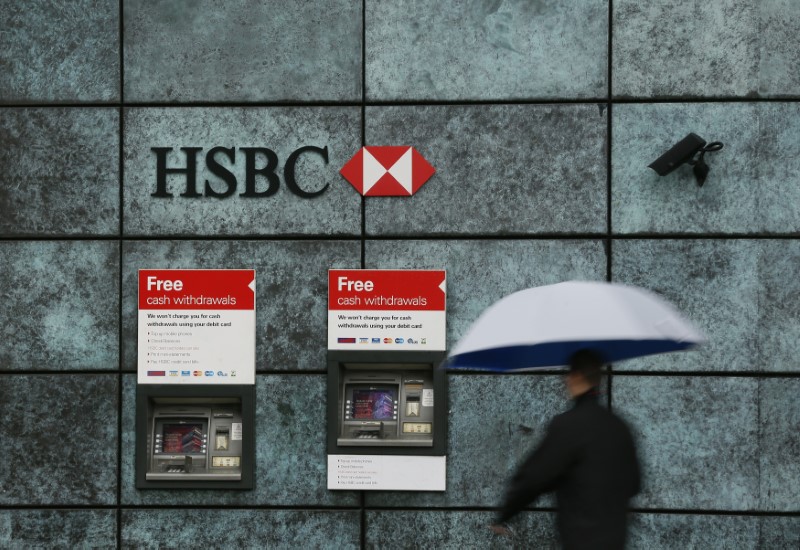By Geoffrey Smith
Investing.com -- European banks have been telling regulators for weeks they’re strong enough to pay dividends again. Now at least a couple of them have the figures to prove it.
HSBC (LON:HSBA) and Santander (MC:SAN), two of the continent’s largest banks, both reported better-than-expected earnings for the third quarter that both featured comparatively modest provisions against possible loan losses and surprisingly strong capital ratios.
At the same time, both stepped up their campaigns to restart returns to shareholders, which were banned by regulators earlier in the year, out of fear that a wave of bad loans could leave the banking sector dependent again on taxpayer-funded bailouts to survive.
Santander is pushing more aggressively: it’s already asked its shareholders to approve a dividend worth 10 cents for this year, albeit in the form of additional shares, along with another 10c cash dividend to be paid next year. Approval from shareholders, who will hardly be blind to the risk of hollowing the bank’s balance sheet in the current circumstances, could arguably sway the European Central Bank to let the payout proceed.
HSBC was more circumspect: it said it “will seek to pay a conservative dividend if circumstances allow” for 2020, but added that a decision will depend on how the economy looks at the start of next year, and will in any case “be subject to regulatory consultation”.
By 6:30 AM ET (1030 GMT), Santander stock was up 3.7%, having earlier hit a six-week high, while HSBC stock was up 6.5% at its highest in two and a half months. HSBC is now up 20% from the multi-year low it hit in September.
Largely, that’s because of its exposure to Asia, where the economy has rebounded more quickly from the pandemic than anywhere else, and where growth and interest rates are in any case higher. HSBC’s Asia business generated $3.2 billion of pretax profit in the quarter, more than the group reported overall. That suggests its operations in the rest of the world lost money.
HSBC responded by saying it is looking for ways to speed up cost-cutting in the U.S. and France, two areas which have been long-term underperformers. But the optics of resuming dividend payments are complicated by the fact that it makes its profits so far away from where its regulators sit in London.
That’s a problem shared by Santander too: the profits are far away, in Brazil, Mexico and the U.S.: a supervisor in Madrid, by contrast, is surrounded by soaring unemployment and business closures, a state of emergency and an ever-earlier curfew. Believing in the strength of the group numbers requires a leap of faith, not normally a supervisor’s forte. The leap required is even greater now that the economy is clearly turning down again in Europe: the pandemic has not yet run its course in this credit cycle.
And yet, the numbers demand respect: Santander said that only 2% of the loans that were subject to moratoria earlier in the year are now impaired. The core tier 1 capital ratio, a key measure of financial strength, has risen to 11.98%, close to the top of its target range (HSBC’s is even more impressive, rising to 15.6% at the end of Q3), provisions have fallen for two straight quarters.
The argument that the dividend ban is making investable companies uninvestable has some merit against such a backdrop. The negative signal that emanates from such a policy risks creating its own reality. Regulators have argued since the pandemic erupted that the banking sector is in much better shape than it was 12 years ago. Maybe it's time they heeded their own advice.
